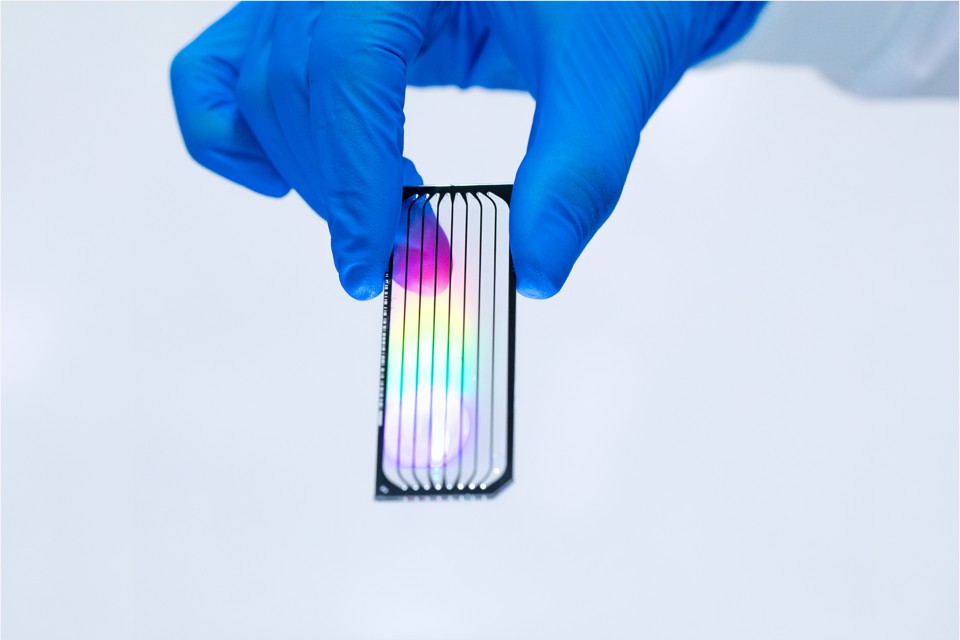
Recently, a DNA test appeared with a premise so far-fetched that its fate was profane and merciless ridicule. Soccer Genomics offers personalized, DNA-based training regimens to young players, and its goofy ad went viral amid internet outrage. It is, alas, only the most recent example of the growing field of sometimes-dubious lifestyle DNA tests.
“It’s a jungle out there,” says Eric Topol, a genomicist at the Scripps Research Institute. As DNA sequencing has gotten cheaper, a number of small companies have looked to fill niches around the two big consumer DNA-testing behemoths, 23andMe and AncestryDNA. These newer tests usually don’t offer disease-risk information, which would bring the scrutiny of the FDA, but they skirt the boundaries by focusing on nutrition and fitness. Sometimes, they just aim for fun, like a DNA test for wine preferences. I’ve likened these lifestyle tests to horoscopes—vague, occasionally informative, sometimes amusing.
Into this jungle now comes a new player with an impressive pedigree. Helix is a new venture from private equity firms and Illumina, the company that makes most of the DNA-sequencing machines in the United States. 23andMe and AncestryDNA use Illumina’s machines, as do most research labs. On Monday, after two years of anticipation since the initial announcement, Helix officially launched a marketplace for products based on DNA tests.
Helix has an innovative business model. Most DNA-testing companies only look for a set number of variants in DNA. Helix sequences all of the expressed genes in the body—a technique called whole-exome sequencing. This is very expensive, but Helix subsidizes most of the cost aside from one-time $80 sequencing fee. Then, it has third-party developers create products focused on specific genetic information. The products available now include everything from a National Geographic ancestry test, to personalized diet coaching, to a custom DNA-based scarf. You pay for each individual product, and the prices range from under $100 to a couple hundred.
The company’s CEO, Robin Thurston, likens Helix to the Apple app store, which is a very deliberate comparison. Unlike Google, which takes a fairly hands-off approach to apps in the Google Play store, Apple individually reviews every app. Helix has a 14-person team that reviews the science behind each of the products they feature, too, which is how the company plans to differentiate itself from the world of pseudoscientific DNA tests. “Hopefully it will translate into us telling consumers that being on the Helix platform is different,” says Thurston. “You can trust Helix in the long run.” (Just to be clear, Soccer Genomics has nothing to do with Helix.)
Oleksandr Savsunenko, the CEO of Titanovo, whose DNA Diet Coach product was slated to be sold on the Helix platform, gave me a rundown of Helix’s scientific review process. He says his company had originally submitted 200 scientific studies to back up the recommendations in their product—60 to 70 percent of which did not meet Helix’s standards. That includes a 68-person study that an earlier version of Titanovo’s product used to recommend cloudy apple juice for fat loss. “Of course I was disappointed when they started to say this is bad, this is bad, this is bad, but in the end the product we have obtained is really strong,” says Savsunenko. Titanovo is now discontinuing the earlier product, called DNA Lifestyle Coach, to focus exclusively on its DNA Diet Coach product through Helix.
(Sometime after the interview with Savsunenko, a Helix spokesperson said DNA Diet Coach would no longer be included in Monday’s marketplace launch: “Titanovo’s beta testing identified some areas that need fine-tuning before broad release and hence decided to hold off launching on Monday.”)
Products currently available through Helix have gotten criticism though, especially a DNA test for wine preference, made by a company called Vinome. The gist of the skepticism goes like this: DNA can tell you what a person can taste, but it can’t really tell you if that person will like it. Thurston says he thinks Vinome meets their scientific standard because the company makes clear that their taste algorithm is based on more than DNA. Vinome also uses an questionnaire, and sure, that can get at your personal taste preferences.
[Source”pcworld”]









